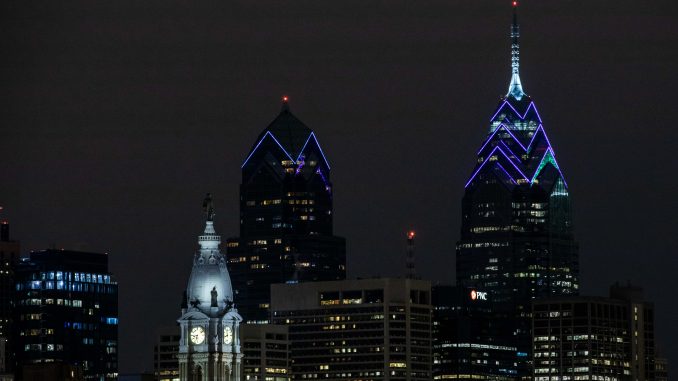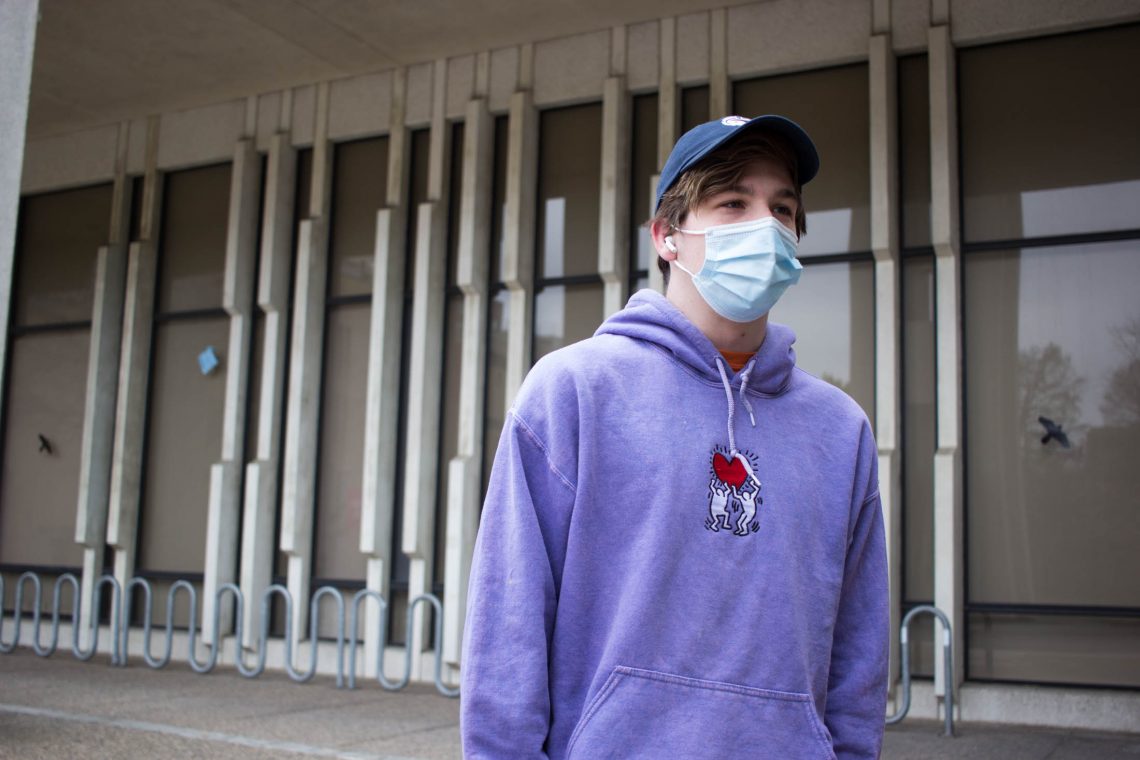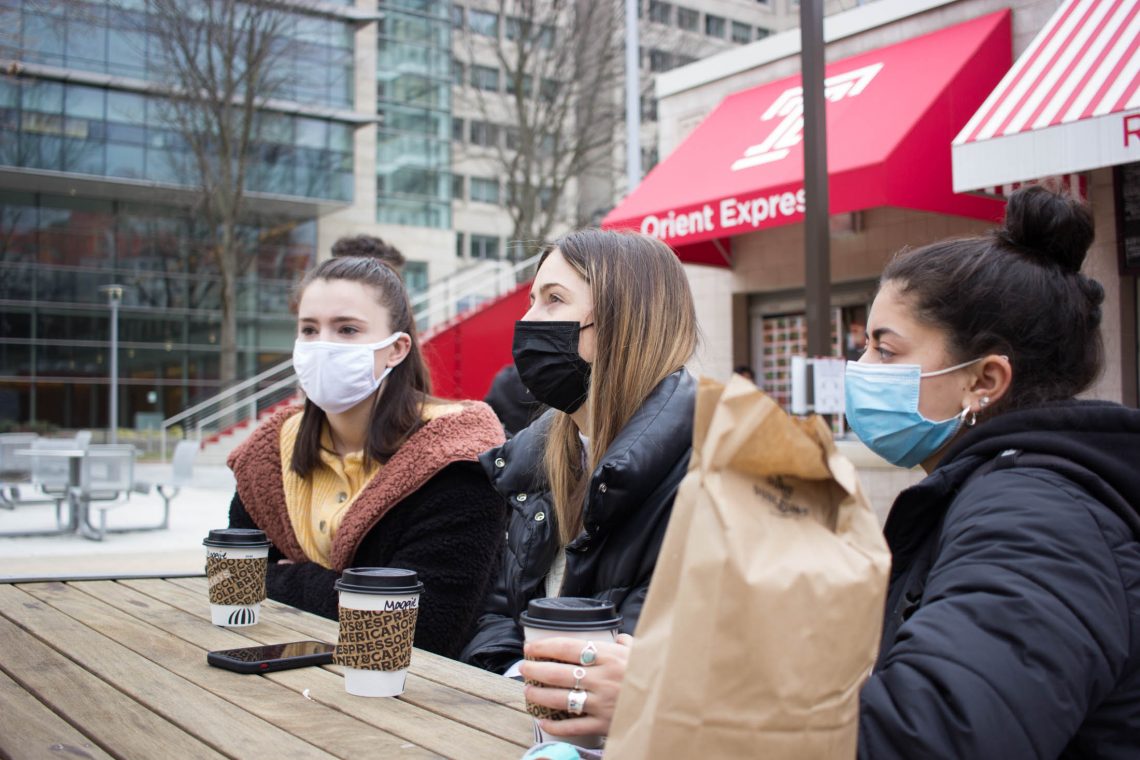
Today marks one year since the City of Philadelphia announced the temporary closure of nonessential businesses and suspension of nonessential government services in response to the pandemic beginning in March 2020.
The city hosted “We Are a City Changed: Ritual and Reflection After One Year in Pandemic,” a virtual event aimed at honoring frontline workers and remembering those who died from COVID-19, today at 5:30 p.m. The city also encouraged houses of worship and faith-based organizations to light candles and ring bells to mourn those who died during the pandemic at noon today.
Rev. Naomi Washington-Leapheart, the director of the city’s faith-based and interfaith affairs, began the event by asking Philadelphians to think about what the past year has meant to them.
“We are gathered here today to reflect on what this past year has been, perhaps express sadness and regret about what it could’ve been but wasn’t,” Washington-Leapheart said.
Despite the somber tone, she encouraged people to be hopeful and take with them the things they’ve learned from the pandemic.
“I’m taking with me and holding this idea of preparing and waiting for the ease that will come,” Washington-Leapheart said. “Hopefully we emerge from the other side better than when we entered the pandemic.”
Mayor Jim Kenney recalled what the first few days of the pandemic were like for the city and how quickly things changed.
“I distinctly remember the first days of this pandemic and the fear and uncertainty we all had,” Kenney said. “As the days and weeks passed, it became clear that what we hoped would be a temporary setback was going to be a far greater challenge with lasting consequences.”

On March 10, 2020, Philadelphia reported its first confirmed case of COVID-19, The Temple News reported.
More than a year later, 122,971 Philadelphians have tested positive for COVID-19 and 3,234 have lost their lives to the virus, according to the Philadelphia Department of Public Health.
Today also marks one year since Gov. Tom Wolf announced the temporary closure of all nonessential business in Pennsylvania.
On March 23, 2020, Wolf issued a stay-at-home order for seven Pennsylvania counties, The Temple News reported.
At the event, Kenney thanked medical workers and other essential personnel for stepping up in the early months of the pandemic and for their continued support.
“Our pharmacists, grocery clerks and delivery drivers kept our city running under extremely difficult circumstances,” he said. “We cannot thank them enough for all that they’ve done.”
Buildings around the city, including the Philadelphia Museum of Art, Boathouse Row and One Liberty Place, are lit blue tonight to honor essential workers and those who died of COVID-19.
Kenney urged residents to remain hopeful as the city continues its vaccination effort.
More than 378,000 Philadelphians have been partially vaccinated against COVID-19 and more than 147,000 Philadelphians have been fully vaccinated, The Temple News reported.
The city announced today it will allow eligible residents from “under-vaccinated” ZIP codes to receive walk-up vaccinations at its Federal Emergency Management Agency vaccination site at the Pennsylvania Convention Center, The Temple News reported.
Residents must be eligible according to the city’s 1A and 1B categories, which include health care workers, transit workers and anyone aged 65 and older.
Students reflect on a year of COVID-19
A year ago today, Temple University students began their first day of remote learning after the university suspended in-person classes that semester due to the pandemic. The university held mostly-remote classes in Fall 2020 and hybrid learning in Spring 2021, and plans to reopen for mostly in-person classes in Fall 2021.
Today, Temple students reflected on what the last year had been like for them and how the pandemic affected multiple aspects of their lives. While some fear the pandemic cost them opportunities to be social and enjoy their college experience, others felt the last year taught them important life lessons.
Jayson Alonzo feels transitioning from high school to college during the pandemic has been challenging, but acknowledges the pandemic made him more thankful, considering he’s young and doesn’t have too many major responsibilities like older people, he said.

“I’m only 18 or 19 years old, so I don’t have to worry about losing any valuable time,” Alonzo, a freshman media studies and production major, added. “Older generations have had to worry about how the pandemic has slowed things down.”
Maris Estevez, a sophomore nursing major, recalls how isolating it was to quarantine during the early months of the pandemic.
“Being in quarantine by yourself for so long, you’re forced to face certain things,” Estevez said. “I was constantly social freshman year, but being by myself all during quarantine, you’ve got to learn to be comfortable to be alone.”
She’s hopeful that increased vaccination distribution will provide a return to normalcy.
Maggie Davis is surprised at how quickly everyone adapted to life during the pandemic, but she’s excited for the possibility of returning to life like that before the pandemic.

“We’re already adjusting to COVID-normal, like wearing a mask outside is so normal to me and I feel weird when I have my mask off,” said Davis, a sophomore advertising major. “We’re kind of adjusting to these new normals but also heading back to things we used to do before which is exciting.”
Despite her desire to return to normal, she’s happy to have learned life lessons from the pandemic, she said.
“For me, I kind of challenged myself to be more outgoing,” she said. “I only have one life, so I might as well be myself and show people my true personality.”


Be the first to comment